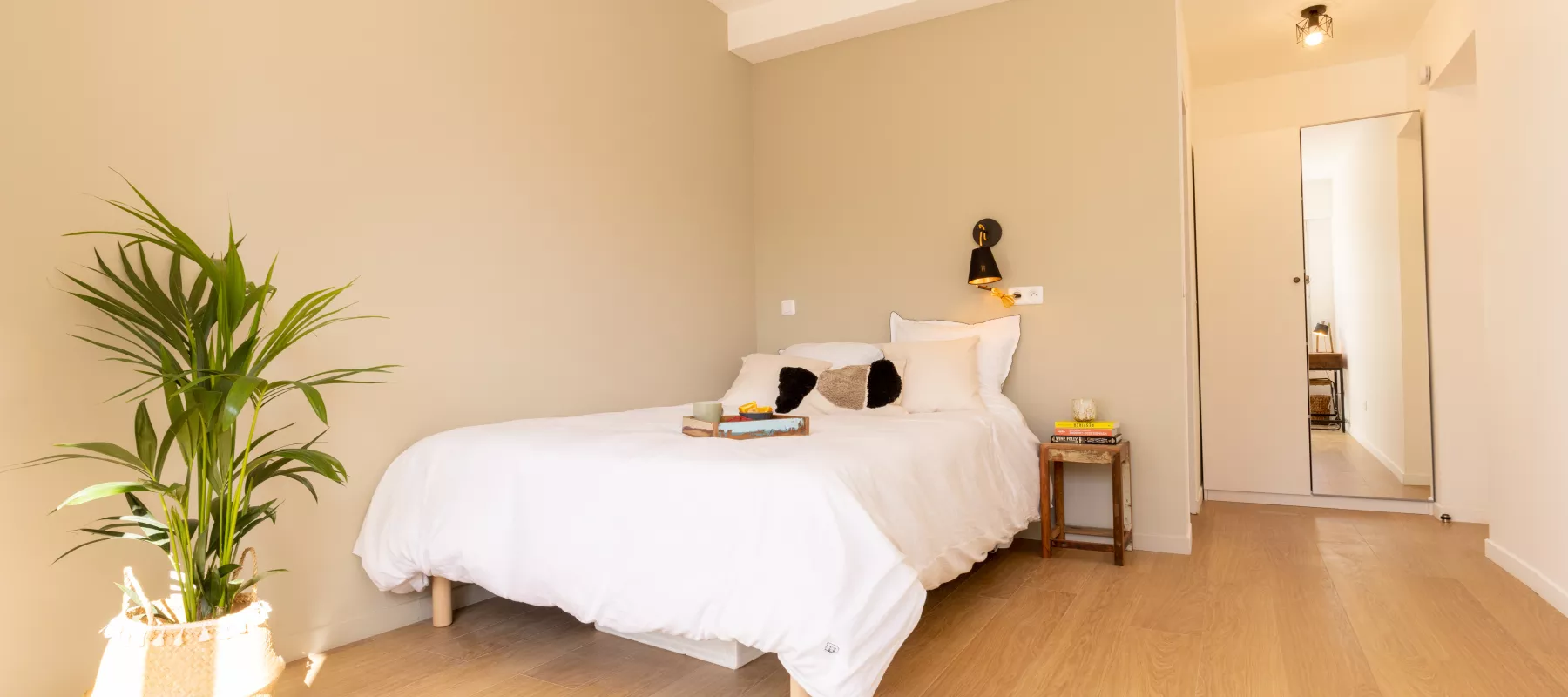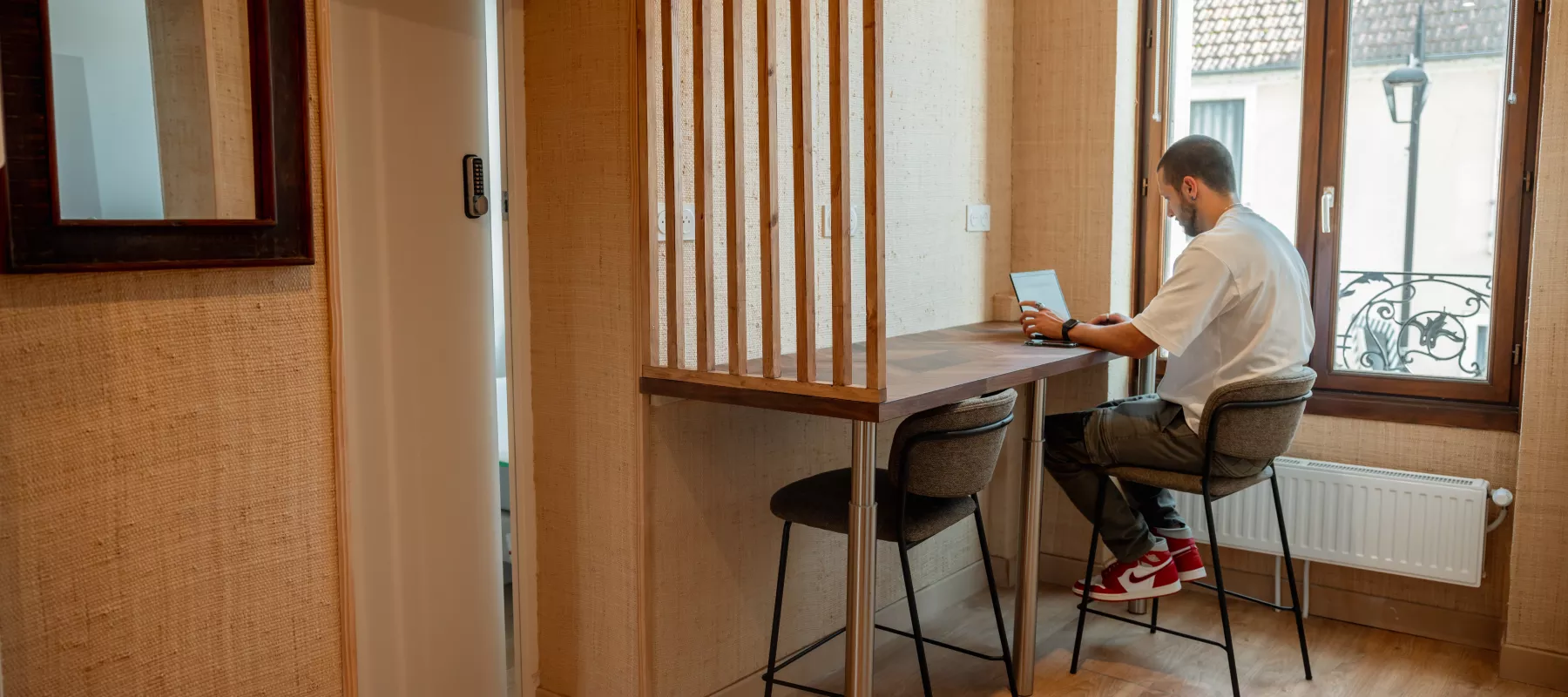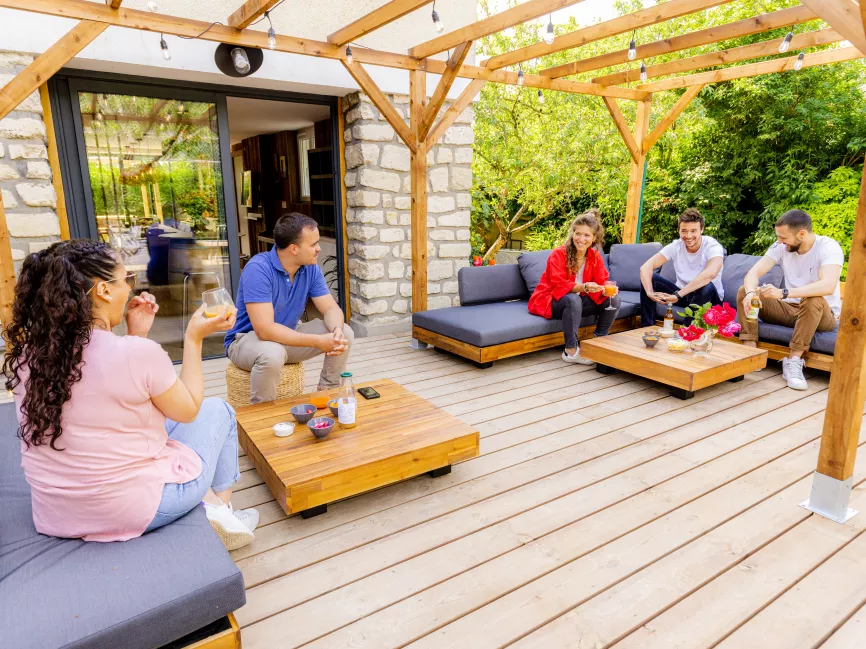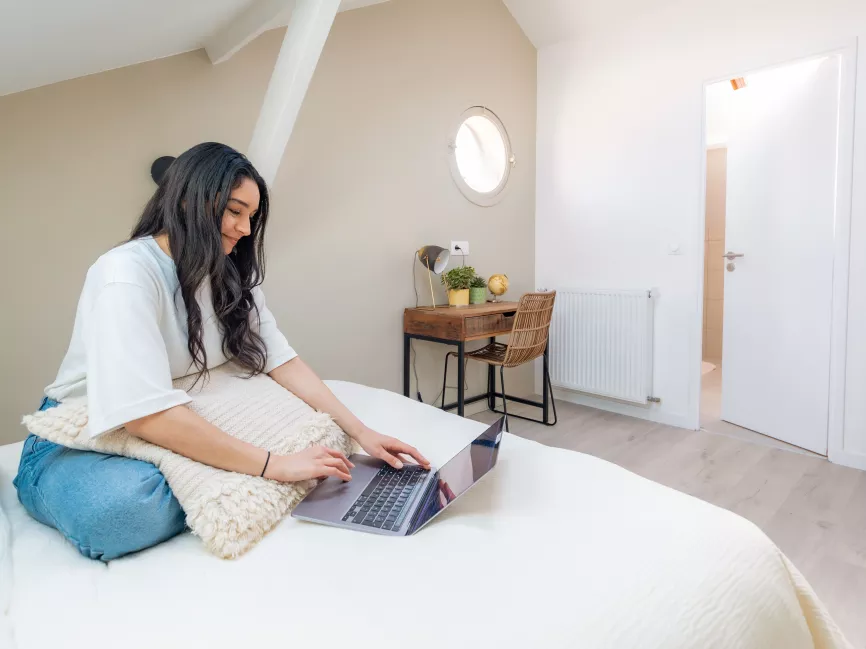Everything you need to know about housing benefits (APL)

In France, depending on one's personal situation, it is possible to receive housing allowances, known as "Aides Personnalisées au Logement" (APL). Who is eligible, where, when, how, why... And is it possible to receive APL at La Casa? Follow the guide!
What are the APL?
The acronym APL stands for: Personalized Housing Assistance. In France, depending on one's personal situation, it is possible to receive housing benefits. APL is assistance intended for individuals to help them pay their rent. Choosing to live in a couple or with roommates often allows for sharing expenses in cities like Paris where the real estate market is expensive. Contrary to popular belief, APL is not reserved for families or students; many people with various situations are actually eligible for housing assistance. To know where to start, one must go to the CAF website and create their beneficiary number. From their CAF account, it is then possible to calculate APL (or make requests for other social benefits). Through the CAF platform, one can become acquainted with the articles of law regarding APL, understand the state of their situation, submit their income amount, the letter from their landlord with signature, and other required documents. APL is not the only benefit available through the CAF website. Depending on one's situation, a beneficiary may also be offered the Active Solidarity Income (or RSA). Like APL, the Active Solidarity Income is distributed by the Caisse des allocations familiales (CAF).
What are the amounts of APL ?
The acronym APL stands for Personalized Housing Assistance. The amount of APL is calculated based on a number of criteria specific to each individual's personal and professional situation. Therefore, it is necessary to make an APL request per person by providing all the required documents to determine the amount of your APL. Furthermore, the amount of APL is not within the control of the landlord who offers their property for rent, and they cannot intervene to change it. The landlord's only role is to complete the documents related to them in the tenant's APL application. The landlord must provide a document that they must fill out by hand and send to the CAF.
On what basis are APL calculated? Here is a list of criteria taken into account by the CAF to calculate the amount of APL:
- Resources (salaries, other social benefits, and income)
- Professional situation (the APL for students differs from that of a working individual)
- Living situation (APL for roommates will not be the same as for cohabiting couples)
- Type of accommodation (APL is only valid for a primary residence)
The maximum amount of APL and the duration of their effect are conditioned by the income information and documents provided by the tenant in their file. APL is granted indefinitely to tenants. Regularly, the CAF asks them for income statements to adjust the amount of APL accordingly. If a tenant's situation requires it, they can benefit from APL indefinitely; there is no fixed time limit. Thus, a student may benefit from APL for the duration of their studies, then stop receiving them after starting a job, and perhaps resume them later, by returning to student status or during a period of unemployment. This is why a reminder of the law is made at the beginning of each request on the CAF website to remind the tenant of the consequences of fraud on their file.-

The tenant is invited to become familiar with them before providing their rental information. The maximum penalty set by the state in case of proven fraud is imprisonment for up to one year. What steps to take to obtain APL in a shared living situation? Before applying for APL, it is necessary to have already signed a lease. This implies having confirmed interest in a rental with a landlord, signed a lease, and provided two guarantees: a security deposit and an act of joint and several guarantee depending on the signed lease.
To understand how these housing benefits granted by the Family Allowances Fund (CAF) work, one must have: their colocation lease (or individual lease if not in colocation!) the amount of rent for their primary residence (and one must have signed a lease to apply for APL, it can be a colocation lease or an individual lease).
Filling out the application on the CAF website. Completing the application form signifies the tenant's commitment to providing accurate information about their situation and an official signature on their application. Why do we receive less APL in shared living situations? When a colocation lease is signed, the roommates agree to share the rent and charges for the accommodation. The CAF takes this into account when distributing the APL among the different roommates. It is therefore likely that an individual paying rent alone will receive more APL than several people sharing accommodation. However, as mentioned earlier, the CAF considers a large number of criteria when calculating the amount of APL awarded to each individual. The amount of APL may vary from one roommate to another ;)
To receive APL and determine their amount, one must visit the CAF website and use the simulator :) If a roommate sends a termination letter to the landlord to announce their departure, they must also inform the CAF to stop receiving APL for a property they have vacated. Therefore, they must send a termination letter to their APL through their CAF account.

In case of moving from one region to another, it's referred to as the "mobility" of the beneficiary. To continue receiving APL, you will need to contact your CAF and declare your mobility so that your beneficiary file is transferred to the correct region. These requests no longer need to be handwritten; they can be declared, and each roommate must take this step individually.
Focus: APL and joint guarantee
If a tenant cannot pay their rent, it is referred to as "default." In the event of default, the guarantee agreement signed by the tenant's guarantor is activated, and the guarantor must honor their commitment to pay the tenant's debts. This legal commitment aims to limit defaults. In the event of non-payment of rent and activation of a guarantee agreement, the CAF is notified of the tenant's failure to fulfill their commitment to pay rent but may continue to pay the APL to reduce the debt and avoid eviction.
The benefits of living in La Casa community. Like in any accommodation, La Casa's roommates can apply for APL. If they are eligible, the staff will assist them with the application process and fill out the required documents as the landlord. La Casa provides administrative support to roommates, including, for example, home insurance. From the moment the lease is signed, roommates benefit from home insurance for their Casa, as well as liability insurance. This turnkey experience offered by La Casa has two objectives:
-> Make the roommates' lives easier from the moment the lease is signed and continue to support them throughout their time at La Casa.
-> Provide them with a framework where they can create quality social connections, with the freedom of any constraints, and enjoy everything the community has to offer.
Thus, beyond their cohabitation lease, the roommates also sign a cohabitation pact. This document outlines a set of common rules that provide a structured framework upon which everyone agrees. This foundation then fosters the development of a harmonious communal life. The structure provided by La Casa is crucial in supporting roommates and enabling them to make the most of everything La Casa has to offer. We are well aware that moving periods can be stressful times, with applying for APL being one of the many tasks on the to-do list... But we are here to support you!
See you soon at La Casa ;)





